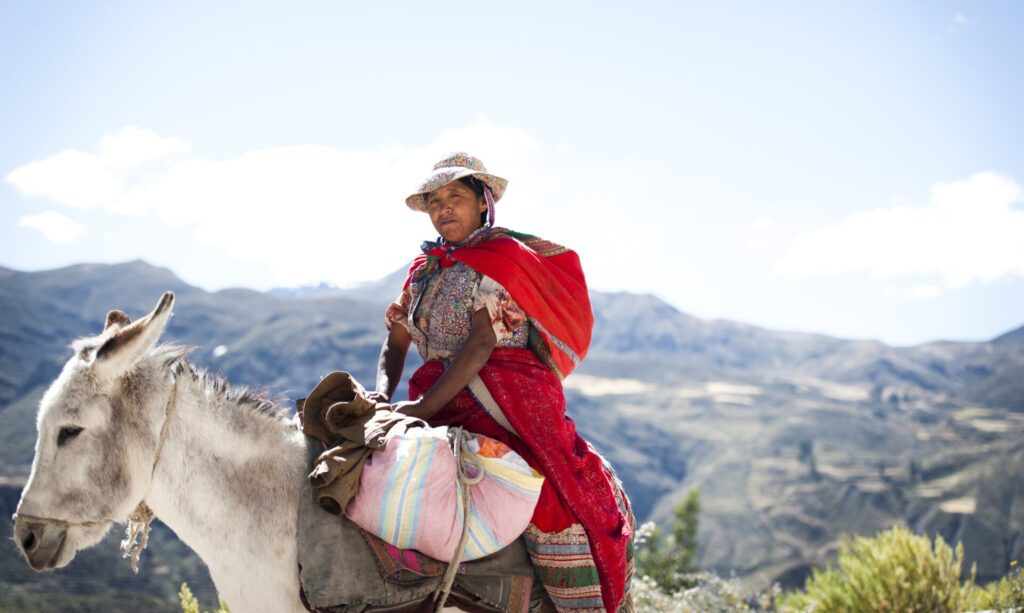Preserving donkey health and welfare for a more sustainable future

For thousands of years, donkeys have been supporting the daily life of many communities, playing a crucial role in the tilling of agricultural land and the transport of goods, clean water and people. Preserving donkey health and welfare is key to sustaining the livelihood of many populations across the world.
These animals help build resilience and make a transformative socioeconomic impact in many parts of the world. For instance, the majority of donkey owners in Mali were found to earn three times the average monthly income, according to estimates from 2014. In Mexico, it was shown that working equids could generate 30% of the minimum daily wage (not to mention additional savings from being able to use these animals for transport that would normally incur a cost). Donkeys also play an important role in some urban areas, notably in India, where they help in the transportation of bricks for the construction industry.
In many cases, their support of agricultural work and transport affords families more free time, with subsequent opportunities for women to participate in economic activities and children to access education. In some of the world’s most remote and rural communities, equids can represent the only available mode of transport for children to get to school.
From transporting people to delivering aid, their ability to reach areas where vehicles cannot travel has also proven critical in disaster-hit, low-to middle-income countries such as Nepal after an earthquake struck in 2015. As extreme weather events, disasters and prolonged droughts happen more frequently, having healthy equids will be vital in the support of vulnerable communities, as they can survive in areas of sparse vegetation and little water.
Unfortunately, the health and welfare of these animals can be frequently neglected because their owners lack sufficient resources and knowledge of the appropriate care that they need. Certain hazardous contexts, such as working in construction industries or in harsh environments, may also present a particular risk to their welfare.

Our standards specific to the welfare of working equids aim to improve donkeys’ living conditions. They include numerous recommendations pertaining to their behavioural and physiological needs, including feeding, water-provision, housing, disease and injury management, handling practices and slaughter. Implementing these good practices often contributes to the prevention of diseases. Ensuring a clean and large enough resting space is a key element of equid welfare. It also eliminates certain risk factors for glanders, a highly contagious and often fatal disease which mainly affects equids but can also be transmitted to humans.
The World Organisation for Animal Health (WOAH, founded as OIE) is working with partner NGOs – Brooke, The Donkey Sanctuary, the Society for Protection of Animals Abroad (SPANA) and World Horse Welfare – through the International Coalition for Working Equids (ICWE). The coalition supports countries in the implementation of appropriate practices that comply with our recommendations, via training, workshops and other resources. For instance, during a glanders outbreak in Nepal in 2021, the ICWE convened a workshop to share expert advice on the management of the disease and produced a series of practical guidance videos available in local languages.
In recent years, the demand for products of donkey origin has skyrocketed. In particular, medicinal and beauty products made from the gelatin in donkey skins have grown unsustainably popular, creating a major threat to these animals and the millions of people who depend on them. For example, the trend has pushed Nigerian donkeys to the brink of extinction, leading national authorities to prohibit their sale or slaughter for consumption until the donkey population recovers. For the same reason, the donkey population in China is estimated to have decreased by 76% since 1992.
As a result, the increased demand for donkeys has boosted their value exponentially, making them harder to afford for people who need them most and also leading to deleterious activities such as theft and illegal trade. In Egypt, the cost of a donkey has increased tenfold from £17 to £170, according to research by The Donkey Sanctuary. With an estimated 500 million people in the world’s poorest communities depending on working equids like donkeys and their hybrids, these trends can ripple through vulnerable regions with devastating consequences for their livelihoods.
On the occasion of World Donkey Day, we are therefore reminding countries to protect the health and welfare of donkey populations. Doing so is also crucial to advancing human well-being and socioeconomic development
